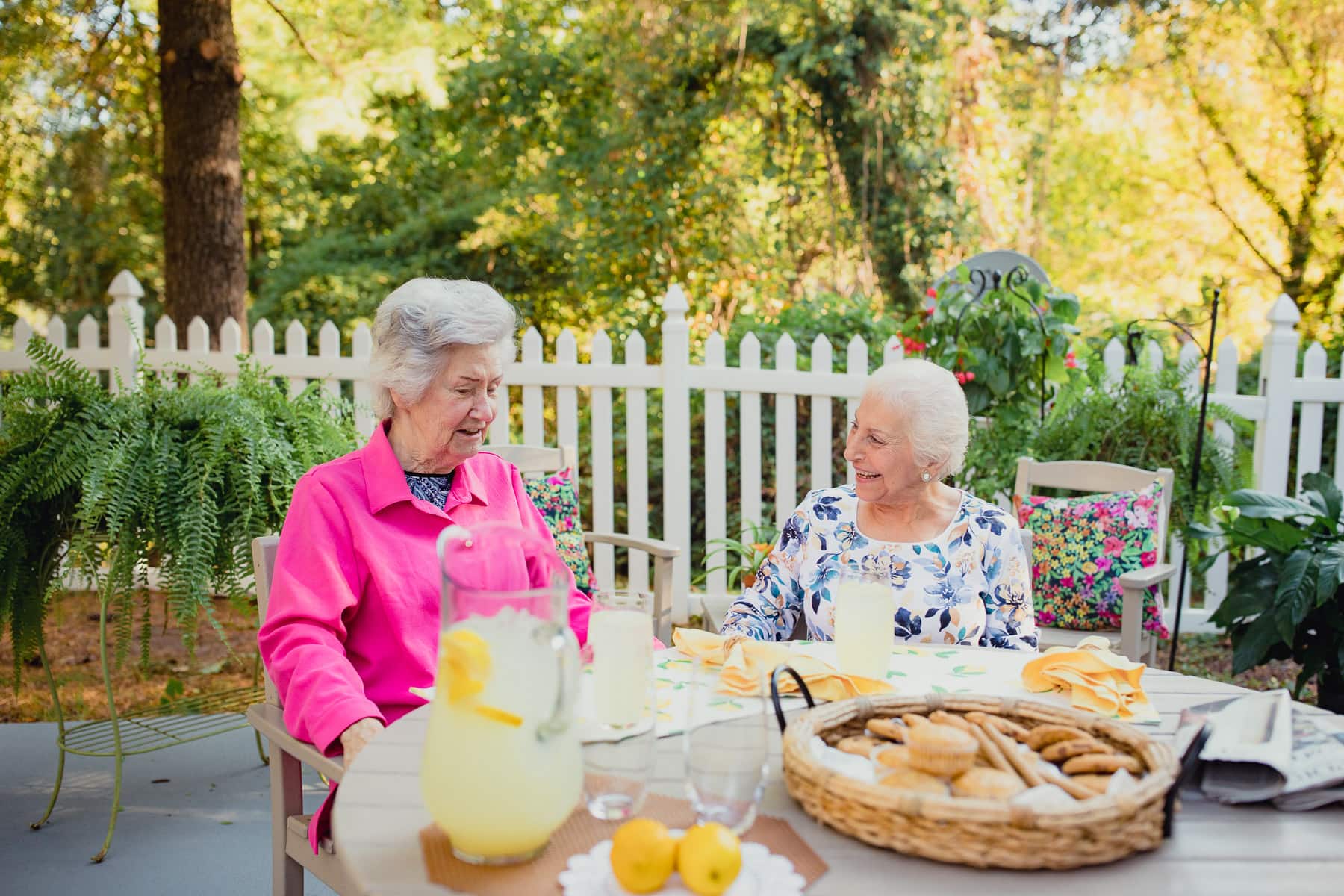If your loved one has diabetes, they will need to monitor their blood sugar levels multiple times a day to live a safe and healthy life.
Monitoring blood sugar levels can prevent hyperglycemia, hypoglycemia, and other serious complications.
There are various ways that your loved one may monitor and manage their diabetes, which will help them live a high-quality life.
With 25% of adults over the age of 65 years old being diagnosed with diabetes, healthcare professionals and scientists have developed strategies and devices to make the disease more manageable.
Learn more about the importance of blood glucose monitoring, proper blood sugar control, and symptoms of high and low blood sugar, and how a compassionate senior living community can help your loved one manage their diabetes.
Why it’s important to monitor blood glucose levels
Monitoring blood sugar levels is one of the most important things a person with diabetes can do. Food, exercise, and medication can trigger high or low blood sugar, which is why blood sugar can fluctuate.
Keeping a journal can help you see what causes your loved one’s blood sugar level to go up or down over time.
Your loved one’s blood glucose levels will react to different foods, medicines, and physical activities, so continuous glucose monitoring can help you plan your day and meals.
Blood sugar monitoring can prevent serious complications such as:
- Eye damage or blindness
- Kidney damage
- Nerve damage
- Heart disease
- Stroke
- Foot problems
- Gum disease
What is glucose?
Glucose is a simple sugar in your bloodstream that gets converted into energy.
Your body produces glucose when you eat, mainly from foods rich in carbohydrates, like fruit, potatoes, and bread.
After a meal, blood sugar levels rise and then begin to dip, which is normal. But in someone with diabetes, their glucose levels stay high for longer.
This is why those with diabetes must limit their carbohydrate and sugar intake.
Symptoms of high blood sugar
If your loved one’s blood sugar levels are high, they may not show any signs at all. If they do, it won’t be until their levels have been high for quite some time.
The blood sugar levels monitor will tell you more than symptoms will if your loved one is hyperglycemic.
The most common signs of high blood sugar, for those who do show early symptoms, include:
- Blurred vision
- Feeling weak and tired
- Frequent urination
- Increased thirst
Later symptoms will generally include:
- Abdominal pain
- Confusion
- Dry mouth
- Fruity-smelling breath
- Nausea and vomiting
- Shortness of breath
Symptoms of low blood sugar
Seniors who have had diabetes for more than 5-10 years or take certain medications for their blood pressure may not show signs of low blood sugar. Low blood sugar levels will only be discovered by monitoring them continuously.
Even if your loved one is less likely to experience symptoms, you should still watch for the following:
- Dizziness
- Rapid heartbeat
- Hunger
- Irritability
- Nervousness or anxiety
- Shaking
- Sweating
Treatment for low and high blood sugar levels
The best way to manage low and high blood sugar levels is to follow a healthy diet, drink water, exercise, and take medication and insulin if needed.
Low blood sugar
If your loved one’s blood sugar levels are low, increase it by:
- Eating or drinking fast-acting carbohydrates
- Soda
- Juice
- Cake frosting
- A tablespoon of jelly or honey
- 2 tablespoons of raisins
- Take a glucose tablet
After waiting 15 minutes, your loved one should re-test their blood sugar levels.
If there’s no change in blood sugar levels, or they are experiencing symptoms such as confusion, slurred speech, loss of coordination, or blurry vision—they need immediate medical care.
High blood sugar
If your loved one is experiencing symptoms of hyperglycemia, they can try:
- Drinking water
- Exercising
- Taking a missed medication
- Insulin doses
If your loved one’s levels are still very high and not decreasing, take them to the hospital for a fast-acting treatment.
Blood sugar monitoring in senior living care
If your loved one’s care needs are increasing, and it’s becoming too difficult to manage their diabetes and health, a senior living community can help
At The Kensington White Plains, we’re equipped to care for seniors with diabetes and help them manage their glucose sugar levels.
Throughout our communities, we have hydration stations and regularly check our residents for dehydration, which can increase sugar levels.
Our team offers each resident an individualized care plan to meet their every need and help to improve and maintain their health.
With rehabilitation services, life-enrichment activities, and specialty diets available, your loved one can get the daily exercise they need and eat a well-balanced diet.
Our on-site nurses are licensed to administer medication and give injections 24/7.
Diabetes management at The Kensington White Plains
With our enhanced assisted living license, we offer residents a high level of care and a home that offers true aging in place.
At our assisted living and memory care communities, Our Promise is to love and care for your family as we do our own.
We maintain this promise by supporting our resident’s independence, motivating them to make healthy choices and socialize, and offering high-acuity care, respect, and compassion.
When your loved one moves into one of our cozy suites, they can also enjoy:
- Around-the-clock care
- On-site nurses
- An on-site physicians office
- Rehabilitation services
- Physical therapy
- Occupational therapy
- Speech therapy
- A calendar full of life-enrichment activities
- Small group activities
- Delicious food with outstanding dining services
- Diabetes management, including injections
- An exercise specialist
- Alzheimer’s care
- Dementia care
- Amyotrophic lateral sclerosis care
- Multiple sclerosis care
- Parkinson’s disease care
Contact us or check out our blog to learn more about our senior living communities, special services, acuity care, caregiver resources, and upcoming events.



